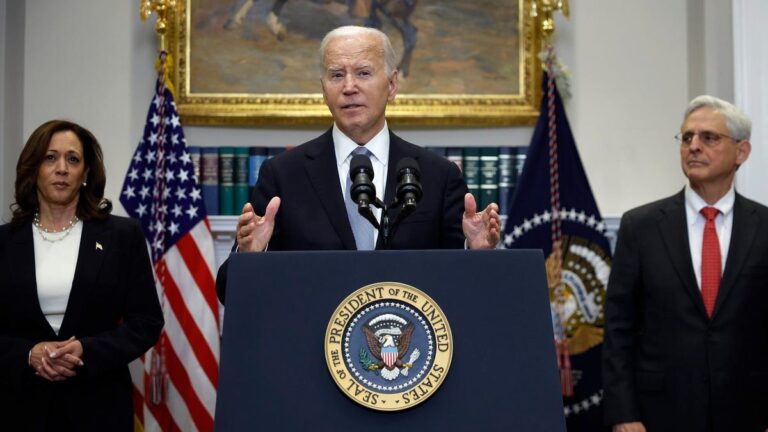US President Joe Biden announced on Sunday that he will not run for reelection in the 2024 presidential election, following a much-criticised and inconclusive first debate with Republican presidential candidate Donald Trump and subsequent calls from leading Democrats for him to abandon his bid for a second term.
“While I had intended to seek reelection, I believe it is in the best interest of our party and our nation that I step aside and focus on fulfilling the duties of my presidency for the remainder of my term,” Biden said in a statement. “I will speak to the American people in more detail about my decision later this week.”
Although Biden is not seeking reelection, he is likely to use the few months remaining in his term between the Nov. 5 election and his inauguration as the next president on Jan. 20, 2025, to push ahead with technology and finance-related policies that remain on his agenda.
Biden is likely to continue working toward student loan forgiveness in his final months as president, but the relief effort is likely to be blocked by the courts. Other administration efforts have been challenged by judges as well. Biden has also focused on eliminating junk fees in the travel, entertainment and banking industries during his presidency.
One of Biden’s major tech initiatives over the past few years has been to ban TikTok in the U.S. After signing the ban in April 2024, it is unlikely he will reverse the policy.
Beyond Biden’s direct efforts, the Biden Administration has overseen the flow of huge amounts of Congressionally approved funding to American businesses, local and state governments, and citizens for pandemic recovery and expanding America’s infrastructure since taking office in January 2021. The $1.9 trillion American Rescue Plan Act of 2021 and the $5.5 billion Infrastructure Investment and Jobs Act of 2022 put money back into the hands of the American people, including a total of $90 billion for broadband internet improvements across the country.
During his tenure, government regulators continued to champion consumer technology needs: The Federal Communications Commission reinstated net neutrality as a policy, quadrupled standards for the broadband speeds that internet service providers must offer their customers, and began requiring broadband “nutrition labels” to make internet plans easier to understand. The Federal Trade Commission cracked down on robocalls and filed lawsuits in 17 states, accusing Amazon of operating as an anti-competitive monopoly.
The CEOs of social media giants Twitter, Facebook and Google have also been questioned at congressional hearings under Biden about misinformation related to the COVID-19 pandemic and the 2020 presidential election. Policing child safety in the social media era has also been a focus of attention under Biden.
Vice President Kamala Harris spoke during a campaign event on July 13.
Who will replace Joe Biden as the Democratic presidential nominee?
After Biden announced he would not run for reelection, he also endorsed Vice President Kamala Harris, among other candidates, including some of the leading candidates who competed against Biden and Harris in the primaries ahead of the 2020 election.
Senators Bernie Sanders and Elizabeth Warren have not announced their intention to run, but they were both prominent senators who sought the Democratic nomination four years ago, as was Pete Buttigieg, who is currently Secretary of Transportation in the Biden administration. During the last election, Warren called for breaking up major IT companies, and Sanders has made similar statements about IT monopolies.
But according to The Hill, other prominent Democrats in the running for 2024 include California Gov. Gavin Newsom, who has pushed statewide policies like gun control, openly criticized right-wing governors in other states and launched a fundraising political action committee to take on Republican governors and leaders. Kentucky Gov. Andy Beshear is another rising star in the party, but he may be given more consideration as a vice presidential candidate, according to Lexington news station WKYT.
Details of the Democratic presidential nominee and the party’s policies will likely emerge in the run-up to the Democratic National Convention, which runs from Aug. 19 to 22 in Chicago, when Biden’s successor on the Democratic slate is expected to be formally selected.


